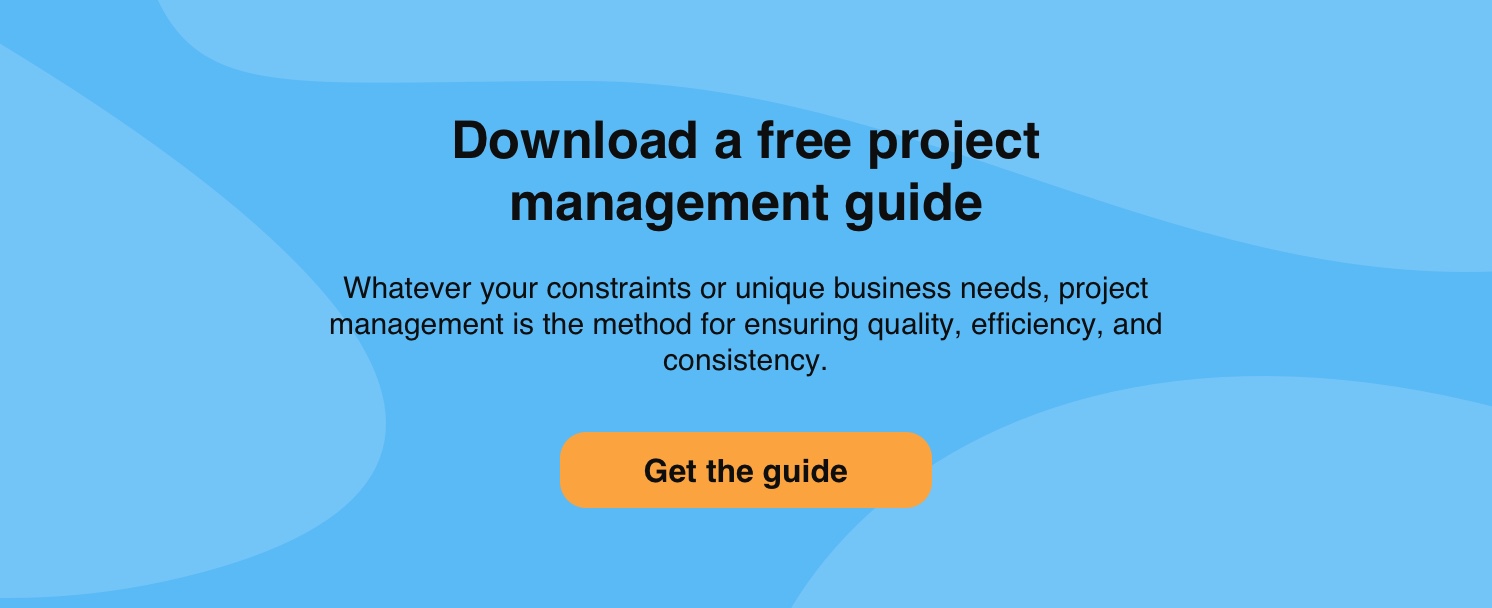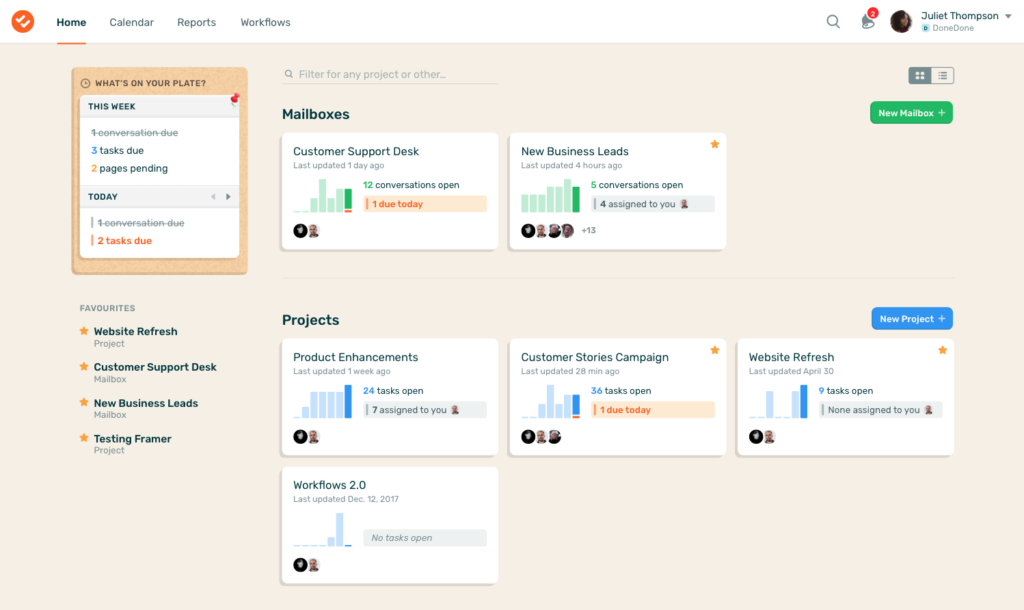Is project management for founders the same as…regular project management? The answer is yes. And no.
Founders and project managers have a lot in common. They’re both balancing multiple, competing to-dos and an ever-growing list of tasks that need to be done. They’re both responsible for keeping their team and stakeholders on track and up to date on the progress of various projects. They balance budgets and they manage expectations. They put out fires when fires flame. With that said, project management for founders is a whole beast of its own.
Founders are dealing with so much more than just seeing a project through to completion—they’re also working on strategically building, scaling and growing their business. Sure, project managers help here too; successfully completing projects is critical to business growth. But project managers are not responsible for the direction and vision of the business, that falls to founders and the executive team.
So whether you’re running a SaaS startup or your own real estate venture, you need strategies and processes for effective project management. Then you can actually focus on what matters most: building a successful business.In this post, we’ll cover everything you need to know about project management for founders. We’ll give you a project management framework, covering the fundamentals and techniques you need as a founder to get sh*t done.Let’s get started.
What is project management for founders?
So what is project management, anyway? Let’s level set. Project management is the act of starting, planning, building, controlling, launching and completing a task to achieve a specific goal within a given timeframe. For founders, project management can be as small as making sure to write an update email every week to your board, or as large as bringing your entire product line to market. No matter the size or scale of your work, project management is the glue that keeps everything together—and ensures that you don’t lose your mind trying to stay on top of it all.
Now, perhaps you’re a founder who’s good with remembering dates and deadlines. Or, perhaps you’re a founder who’s great with names. Perhaps you’re amazing at projecting numbers and analyzing data. Or, maybe you’re someone who can look ahead and plan for the next year, two years and beyond.Whatever your gifts are, there’s one skill that you need to be an expert at—whether it comes naturally or not—if you want to build a successful business: project management.

Project management fundamentals
It’s obvious, project management isn’t a skill that comes naturally to everyone. You remember that kid in elementary school with the impeccable notes? Or maybe that former coworker who could create a kick-ass meeting agenda where no line items were missed? Project management comes easily to these people. As a side note: Hire these people.In the meantime (you’ve got someone interviewing them right now, I assume?) if you struggle to keep on top of the day-to-day, or can’t seem to remember where you put that sticky note with that really important thing on it, you need to learn how to become more like that kid and former coworker.

This is where the core guiding principle of project management for founders comes in: Focus.
The first and foremost action item as you begin to make project management your next super skill is to eliminate context switching as much as possible. In other words: Make focus your new sidekick.Think of the phrase ‘Sleep on it.’ Whoever invented the saying was onto something. When you sleep, all your jumbled thoughts and ideas work themselves out. Why? Because you give your brain time to properly process the problems of the day.
As a founder, you’ve got a lot of things going on at any given point during the day. From meetings, to unexpected changes, to working with a variety of different people, your brain is constantly switching from context to context. Every time you switch, your brain works hard to help you make whatever decision the new context asks for. But context switching is a brain function and productivity killer.
When you’re having to switch from situation to situation, you do not give your brain the opportunity to truly analyze and provide the best possible decision for that situation. In simpler terms? Context switching increases bad decisions. As they say, when you try to do too many things at once, you just do them all worse. You need to give your brain the proverbial opportunity to “sleep on it.”
The ultimate project management “technique” for founders
Okay so how do you give your brain the break it needs to focus? How do you eliminate context switching as much as possible in order to be a better business builder? How do you go from founder-who-lost-sticky-note-with-important-thing-written-on-it to kick-ass-founder-on-top-of-all-the-things?
Rather than turn this post into a listicle of recycled advice like “set aside time every morning to read emails” and “have no-meeting days,” here’s one solid project management “technique” you should be using as a founder:
Invest in a simple project management tool.
The keyword here is simple.As you build and scale a lucrative business, you’re probably using a variety of tools to get through the day (let’s hope you’re not just using sticky notes).
Whether or not you’ve already got them, your business probably needs a tool for task management, a tool for collaboration, a tool for bug and issue tracking, and a help desk for customer support.But remember what we just talked about re: context switching? Jumping from tool to tool is the same thing! It’s bad for your brain and it’s bad for business.

That’s why you need to select one simple platform that consolidates most—or all—of these tools into one. But you don’t need a tool that overcomplicates everything, offering bells and whistles that you’ll never use. Instead, you need a tool that has everything you need, and just that. So think about your business and think about your goals. Then select a project management tool that’s simple enough to understand, while robust enough to help you scale.
DoneDone makes it easy.
From easy task creation, to the ability to set priorities, due dates and assign roles, DoneDone is a founder’s project management dream. What’s more? It’s an all-in-one solution: you can use DoneDone for bug tracking and customer support, too. Get started free for 30 days.